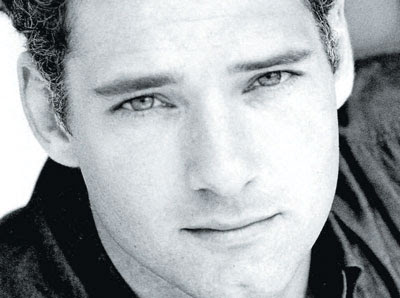The Montreal Interviews: Paul Hopkins
While our “10 questions” interview series is on its year-end hiatus, we are pleased to present a short interview series by Praxis Theatre Associate Artist Greta Papageorgiu: The Montreal Interviews. Enjoy!

 1) What does Montreal mean to you?
1) What does Montreal mean to you?
I think Montreal is the soul of Canada, the home and example of the original accommodation between two cultures, that laid the frame work for the Canadian experiment. Today, Montreal, is a living testimony to that experiment – it doesn’t always seem like it’s working but it definitely creates an energy that is vibrant and resonates through the rest of Canada.
For me, personally, it’s the place I call home no matter where I happen to be working.
2)As the recently appointed Artistic Director of Repercussion Theatre in Montreal, where would you like to see the company go under your direction?
I’d like to evolve Repercussion Theater into a centre for classical theatre in Montreal; a place for people who love the classics. From that centre, we will continue to do what we do, producing classical theatre in the park various parks, but also finding ways to reach other communities besides the obvious geographic ones; exploring the a new reality to our modern sense of community.
3) What would you tell a kid who said, “Shakespeare is boring”?
I would agree with him, if his only experience with it was in a classroom environment where he is made to read and study it by himself and then write essays about the themes, plot, etc., for which he will be tested and judged. His plays were written to be. The truest form of a Shakespeare play is created in one’s imagination when it is spoken by people who know how to act it and heard amongst a crowd of people. At the same time we should be grateful that the school system keeps his work alive and that there are many teachers out there who really know how to bring his work to life and peaks the interests of certain student.
4) What are the challenges of putting on a traveling outdoor production?
The cost and maintaining people’s attention. We travel, set up and take down our stages everyday. Transporting a show that can been seen by a potential crowd of 1,200 people outdoors is expensive. Arranging the park space and dealing with different presenters at individual parks also requires a lot of administration.
Artistically, I guess it’s like acting on stage with an animal. The park, the background to your stage, is alive. To work with that environment and still maintain the focus necessary for the work is the key to success. Fortunately, the plays we produce were originally performed with similar distractions and are often set in a forest, field or some Italian piazza
5) What can we do to increase audience sizes in the theatre?
I don’t know. Perhaps by letting people into the process of making a piece of theatre so that they love it as much as the people doing it do. Fundraisers that use lawyers as actors draws a lot of attention. Ad agencies, through the advent of YouTube, are now using consumers to sell themselves products. Attention, the thing which often draws actors to the profession, has become the new commodity. Everyone is fascinated by acting. Perhaps there’s a way to share the experience.
6) What is the strangest thing that has happened to you on stage?
Mask work can be very strange and wonderful. Some of the experiences I’ve had performing in a classroom with a mask have made believe in that I’m not always the one who’s in control.
7) Who is you favourite Shakespearian character?
I wish I could be more clever then this but, off the top of my head, I’d have to say Prince Hal or Henry V. I still feel like a boy who’s misjudged, longs to grow up, get the approval of his father, have adventures and marry a French girl. (My English wife’s last name is Guy – so I’ve got that covered!)
8) Why should a young actor study the Classics?
The way I’ve studied it has given me a process that I can apply to all my work. Through that process I get to ingest the beauty of his work. You know you’ve succeeded if, through the process, you are inspired by his work. If one follows that process in all there work with the belief that that potential beauty lay there – the well will run deep. That being said, I’ve felt the well run dry at times – maybe that’s why my career has led me back to doing the Classics.
9) What plays will you be doing next season?
Will be doing The Tempest and, hopefully remount our production of Les Fourberies de Scapin/Scapin the Schemer. Plus, I’m pushing to produce a two hander that’s is made of some of Shakespeare’s greatest wooing scenes woven together with sonnets and a Christmas show, that revolves around Yorick. Yorick is the deceased court jester whose skull is exhumed by the gravedigger in Hamlet.
10) If you had a $100,000 no-strings-attached production budget, what would you do with it?
Great question – when is one given a $100,000 without strings? I’d do a simple play that I love surrounded by people I love to work with and pay them lots of money. I love Shakespeare. How about 12 actors and one director? Four five-day weeks of five hours rehearsal days (people have children and other commitments), and then perform for three weeks (reasonable) – so I guess that’s about $1,000 a week that’s… pretty good – ooops! I forgot about the designer, a stage manager, space rental, lights, set, union dues, RRSPs, box office administration. Okay, I guess that would bring us to around $600 a week for everyone. Gees, $600 a week . . . Professional Theatre’s a ball of strings.
I’d do it for free and give everyone an amazing vacation – probably in Montreal.
Now offer me a million…


Recent Comments